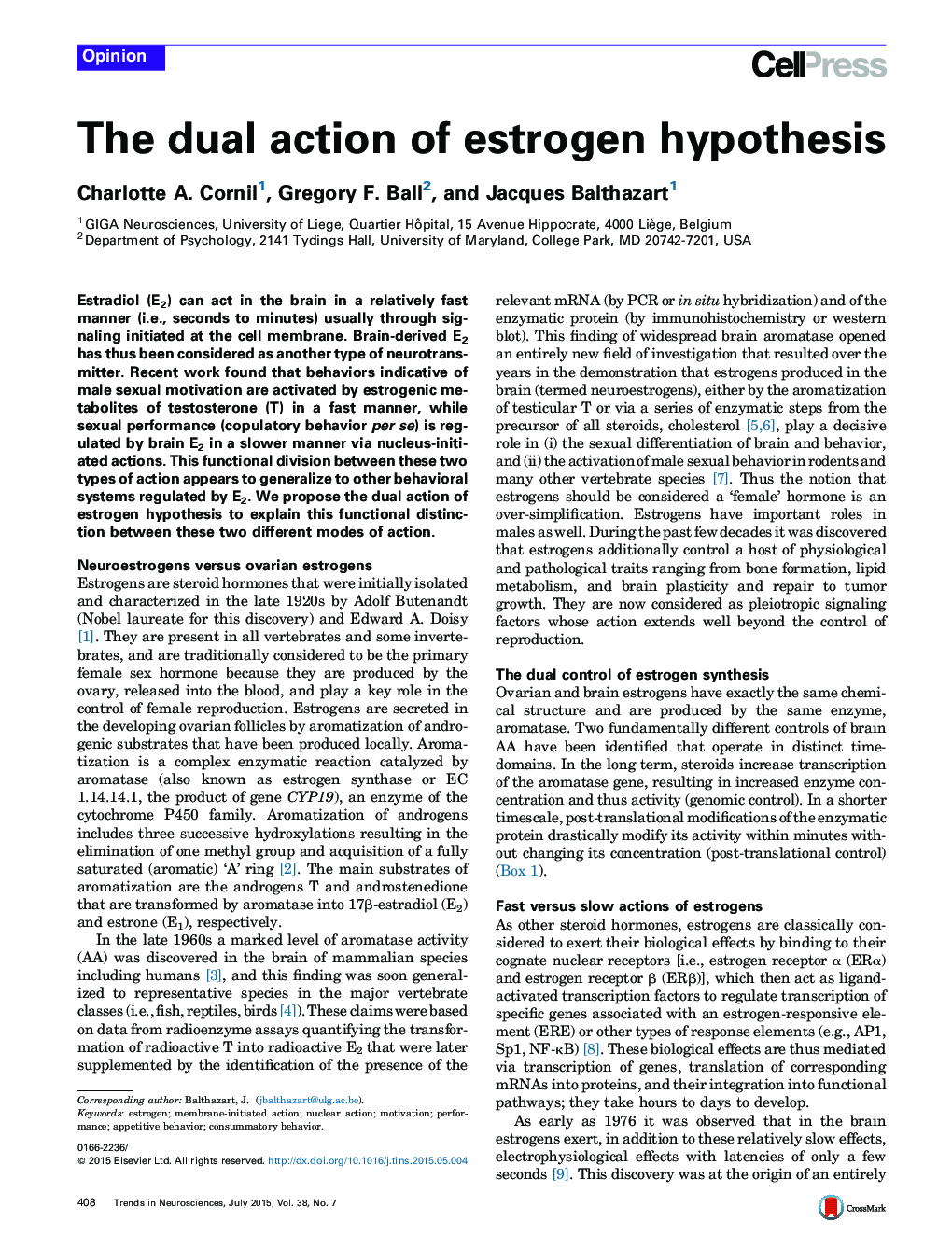| Article ID | Journal | Published Year | Pages | File Type |
|---|---|---|---|---|
| 4354193 | Trends in Neurosciences | 2015 | 9 Pages |
•Estrogens affect behaviors by slow nucleus- and faster membrane-initiated mechanisms.•Sexual motivation is rapidly controlled by estrogens acting at the cell membrane.•Sexual performance requires action of estrogens during a longer period.•This differential control extends to estrogen control of other behaviors.
Estradiol (E2) can act in the brain in a relatively fast manner (i.e., seconds to minutes) usually through signaling initiated at the cell membrane. Brain-derived E2 has thus been considered as another type of neurotransmitter. Recent work found that behaviors indicative of male sexual motivation are activated by estrogenic metabolites of testosterone (T) in a fast manner, while sexual performance (copulatory behavior per se) is regulated by brain E2 in a slower manner via nucleus-initiated actions. This functional division between these two types of action appears to generalize to other behavioral systems regulated by E2. We propose the dual action of estrogen hypothesis to explain this functional distinction between these two different modes of action.
